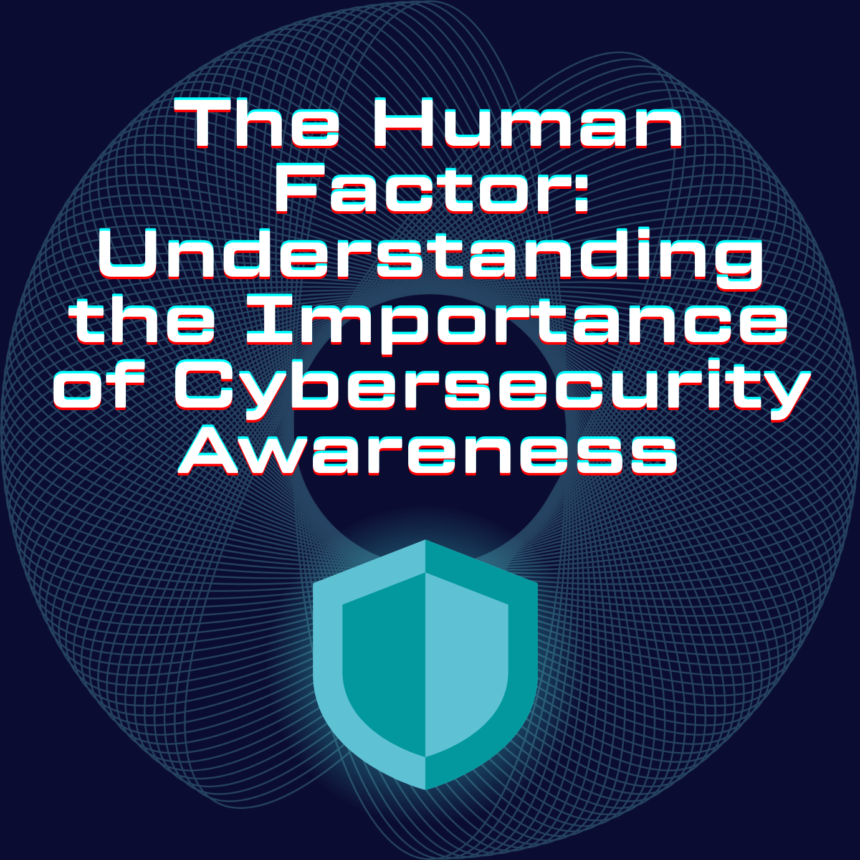In the dynamic world of cybersecurity, the human factor plays a pivotal role in maintaining a strong defense against cyber threats. Cybersecurity awareness is the foundation upon which organizations and individuals can build a resilient security posture. Understanding the importance of cybersecurity awareness is critical for safeguarding sensitive information and mitigating risks effectively. Let’s delve into why cybersecurity awareness matters:
1. Recognizing Cyber Threats: Cybersecurity awareness empowers individuals to recognize various cyber threats, such as phishing emails, social engineering attempts, malware, and ransomware. By understanding these threats, users can avoid falling victim to cyberattacks.
2. Protecting Personal Information: Individuals who are cybersecurity-aware are more cautious with their personal information online. They understand the importance of limiting the data they share, protecting their identity, and being cautious about the websites they interact with.
3. Safeguarding Business Assets: In a corporate setting, employees are often the first line of defense against cyber threats. Cybersecurity-aware employees are better equipped to protect critical business assets, customer data, and intellectual property from potential breaches.
4. Implementing Best Practices: Cybersecurity awareness training equips individuals with best practices for password management, software updates, secure Wi-Fi usage, and safe browsing habits. Following these practices significantly reduces the risk of security incidents.
5. Reporting Incidents Promptly: Employees who are aware of cybersecurity threats are more likely to report suspicious activities promptly. This enables organizations to respond quickly to potential breaches and prevent further damage.
6. Mitigating Insider Threats: Awareness programs also address insider threats by educating employees about the risks associated with sharing sensitive information, adhering to company policies, and recognizing signs of malicious intent.
7. Cultivating a Security Culture: Cybersecurity awareness fosters a culture of security within organizations. When all employees prioritize cybersecurity, it creates a collective effort to defend against threats and strengthens the overall security posture.
8. Enhancing Cyber Resilience: An aware and informed workforce contributes to increased cyber resilience. Even if a breach occurs, an organization that promotes cybersecurity awareness is better prepared to contain and recover from the incident.
9. Nurturing Digital Citizenship: Cybersecurity awareness extends beyond workplaces. It promotes responsible online behavior and digital citizenship among individuals of all ages, fostering a safer digital ecosystem.
10. Staying Ahead of Evolving Threats: Cyber threats are continually evolving. Cybersecurity awareness ensures that individuals and organizations stay updated on the latest threats and adopt proactive measures to counter them effectively.
11. Compliance and Regulations: In many industries, compliance with cybersecurity regulations is mandatory. Cybersecurity awareness helps organizations meet these requirements, avoiding potential legal and financial consequences.
12. Building Trust and Reputation: For businesses, a strong cybersecurity stance instills trust in customers and partners. Demonstrating a commitment to cybersecurity awareness enhances the organization’s reputation and credibility.
In conclusion, cybersecurity awareness is a fundamental aspect of maintaining a secure digital environment. Empowering individuals with knowledge about cyber threats, best practices, and the importance of cybersecurity creates a proactive line of defense against malicious actors. By recognizing the human factor’s significance, organizations and individuals can pave the way for a safer and more secure digital future.
